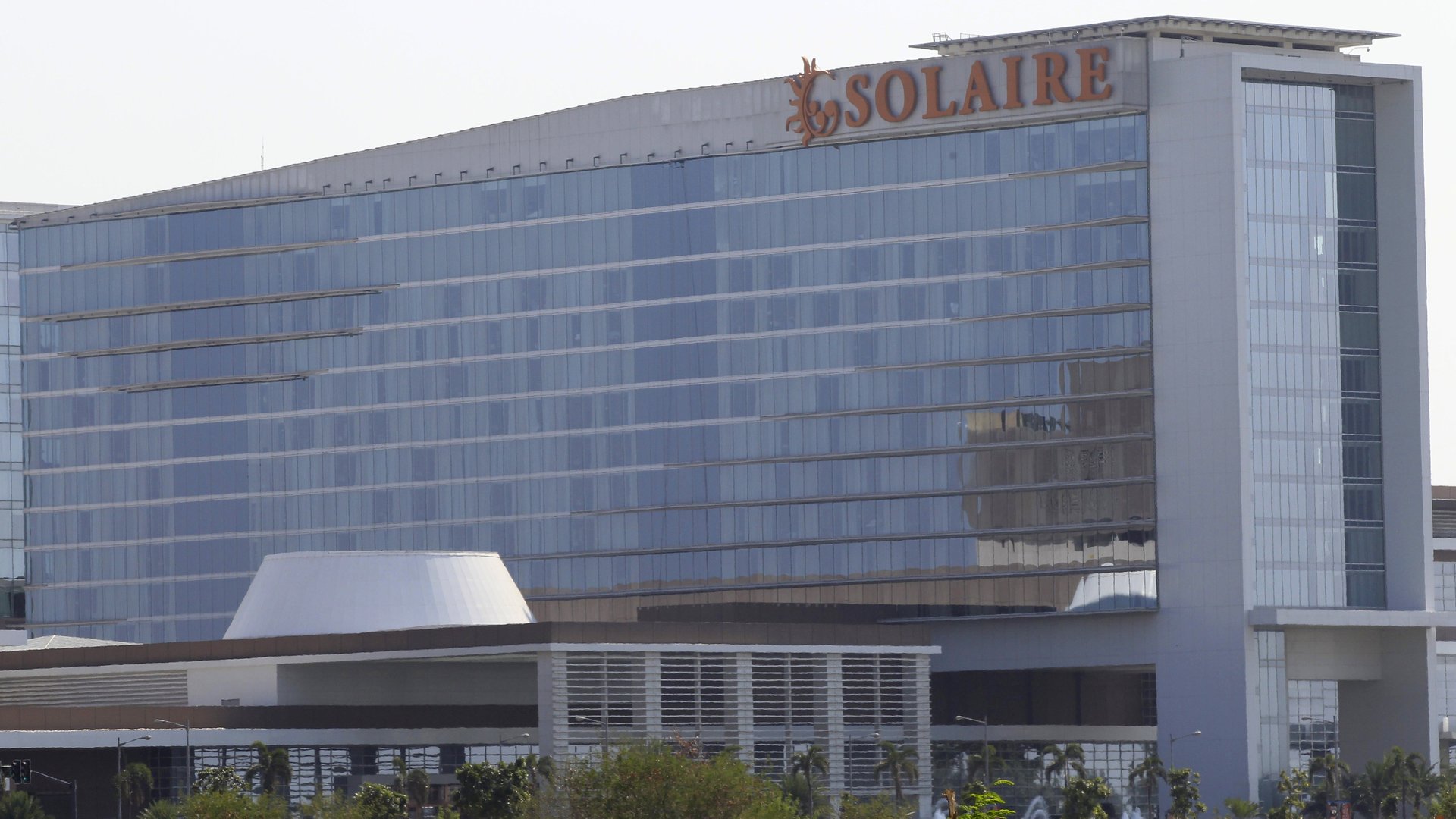Casinos in the Philippines are a great place to launder money
In early 2013, the Philippines toughened up its laws against money laundering, which had been enacted in 2001. Now the rules would apply to more businesses besides banks. Casinos, however, managed to persuade the government to keep them free of the burdensome regulations. Today, their victory is turning out to be bad news for the central bank of Bangladesh.


In early 2013, the Philippines toughened up its laws against money laundering, which had been enacted in 2001. Now the rules would apply to more businesses besides banks. Casinos, however, managed to persuade the government to keep them free of the burdensome regulations. Today, their victory is turning out to be bad news for the central bank of Bangladesh.
Money stolen from Bangladesh Bank by hackers—over $80 million—ended up in Manila casinos and with junket operators, and most of it has vanished since then.
The money can be traced up to a certain point. It’s known to have entered Philippines’ financial system through a handful of accounts at Rizal Commercial Banking, before being consolidated into one account. Most of it then ended up in casinos, where it was used to buy casino chips or pay for losses.
“The paper trail ends there. That is the problem,” Teofisto Guingona, head of the Philippine senate’s anti-corruption committee, told Reuters. “Right now we are at a dead end.”
Because of the exemption voted in years ago, authorities investigating the case can’t compel casinos to submit reports on operations or specific players. As a result, it’s unclear whether Bangladesh Bank will be able to recover its missing funds, barring an investigative breakthrough of some sort.
The gaming establishments involved include City of Dreams Manila (owned by Melco Crown Philippines Resort Corp.) and Solaire Resort & Casino (owned by Bloomberry Resorts).
In 2012/13, Filipino lawmakers excluded casinos from the list of institutions required to report suspicious transactions. Yet in 2011, Vicente Aquino, executive director of the Anti-Money Laundering Council, made convincing arguments that casinos should be subject to the regulations:
“Casinos are actually known conduits of money laundering because buying casino chips and exchanging (them) with cash later without actually gambling, that’s laundering of funds… As a general rule, casino gamblers use financial institutions such as banks to deposit or transfer the funds, but there are certain instances where banks are not used to transact casino winnings or casino bets.”
Arguing on behalf of the casinos was state-owned Philippine Amusement and Gaming Corp., or Pagcor, which contributes significant revenue to the government. It argued that the rules would be “seriously detrimental to its operations,” making it less competitive in the gaming industry, including against local players.
Today, Bangladesh Bank can at least take comfort that the damage wasn’t worse. Hackers attempted to steal $850 million more, and were thwarted only by an attention-grabbing spelling error. There, at least, the bank enjoyed a bit of luck.